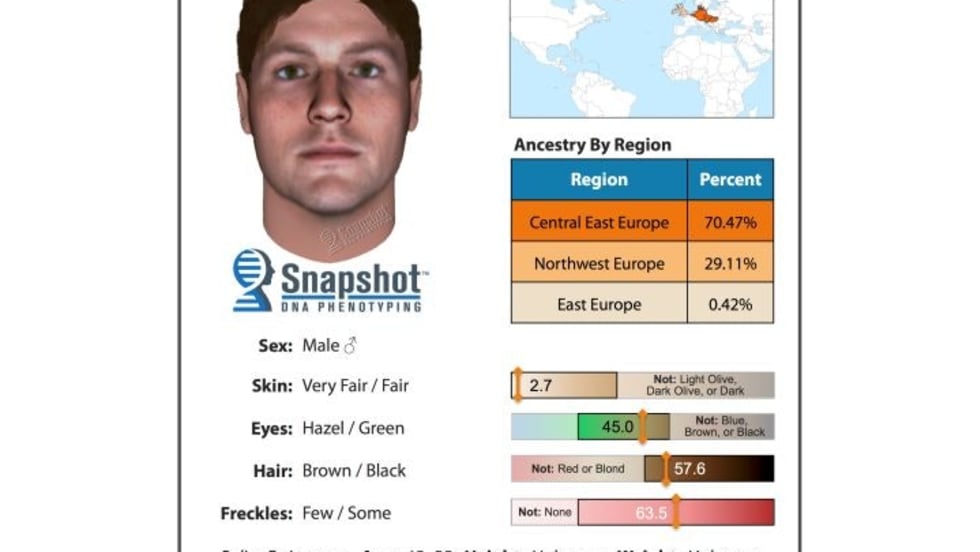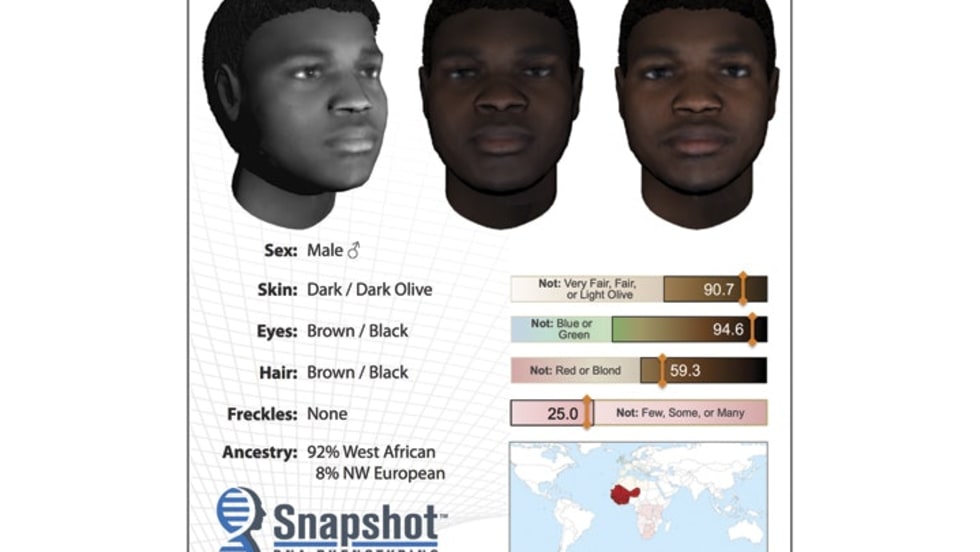
Integenx has announced that a second major national database, The National DNA Database (NDNAD), has had forensic DNA profiles uploaded from the RapidHit System. The NDNAD was established in the United Kingdom in 1995. Currently, more than five million forensic DNA profiles have been uploaded into NDNAD.
Read More →
Working with the Fort Wayne (Ind.) Police Department, Parabon generated a composite image from DNA linked to the unsolved murder of April Tinsley.
Read More →
An army of law enforcement officers descended on a wooded area 30 miles west of Dannemora, N.Y., Sunday after police confirmed that DNA evidence removed from a hunting camp a day earlier was linked to two murderers on the lam who escaped from prison.
Read More →
San Francisco Police Chief Greg Suhr on Tuesday said the city’s entire backlog of old rape kits has been counted by hand and will be tested by the end of the year with money already in the department’s budget.
Read More →
The break in the case occurred after police matched Wint to DNA on the crust of a pizza found in the home, according to law enforcement officials with knowledge of the investigation.
Read More →
D.C. prosecutors have stopped sending DNA evidence to the city’s new state-of-the-art crime lab after they said they discovered errors in the way analysts determined whether a sample can be linked to a suspect or a victim.
Read More →
Parabon NanoLabs' Snapshot does much more than reveal an unknown subject's hair color and eye color. It can also be used to determine a subject's ancestry in detail.
Read More →
Law enforcement officials are still not sure how the body of 17-year-old Carolyn Lee Andrew ended up in a shallow grave in Duluth's Twin Ponds in 1981. But thanks to DNA technology, nearly 34 years later, authorities believe they've finally determined the identity of her killer.
Read More →
The Federal Bureau of Investigation (FBI) has updated its DNA databasing standards to include an Addendum to the Quality Assurance Standards for DNA Databasing Laboratories performing Rapid DNA analysis and Modified Rapid DNA Analysis Using a Rapid DNA Instrument.
Read More →
When CODIS fails to find a match, don't let your cases go cold. IACP Booth #303
Read More →